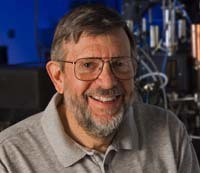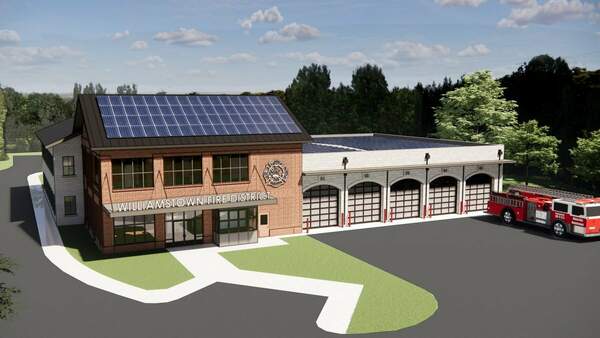Nobel Prize Laureate William Phillips to Discuss Time and Einstein
 |
| 1997 Nobel Laureate in Physics William Phillips. (Photo By Robert Rathe)NIST |
At the beginning of the 20th century, Einstein changed the way we think about Nature.
At the beginning of the 21st century Einstein's thinking is shaping one of the key scientific and technological wonders of contemporary life: atomic clocks, the best timekeepers ever made.
Such super-accurate clocks are essential to industry, commerce, and science; they are the heart of the Global Positioning System (GPS), which guides cars, airplanes, and hikers to their destinations.
Today, atomic clocks are still being improved, using atoms cooled to incredibly low temperatures. Atomic gases reach temperatures less than a billionth of a degree above Absolute Zero, without freezing. Atoms at that temperature enable clocks to attain accuracy of better than one second in 80 million years. In doing so, they both use and test some of Einstein's strangest predictions.
The lecture is free and the public is cordially invited, but seating is on a first-come basis. The lecture will include multimedia, experimental demonstrations, and easily accessible explanations about the news in today's scientific world.
Phillips is a Fellow of the National Institute of Standards and Technology and Distinguished University Professor, University of Maryland.
He won the Nobel Prize in Physics along with colleagues Steve Chu and Claude Cohen-Tannoudji for development of methods to cool and trap atoms with laser light.
He has received numerous other awards, among which are the American Academy of Achievement Award, the Condon Award of the National Institute of Standards and Technology, the Archie Mahan Prize of the Optical Society of America, and the Arthur L. Schawlow Prize in Laser Science from the American Physical Society. He is a member of the American Academy of Arts and Sciences, the National Academy of Sciences, the Pontifical Academy of Sciences, among others.

 WILLIAMSTOWN, Mass. — The Prudential Committee on Wednesday signed off on more than $1 million in cost cutting measures for the planned Main Street fire station.
WILLIAMSTOWN, Mass. — The Prudential Committee on Wednesday signed off on more than $1 million in cost cutting measures for the planned Main Street fire station.













